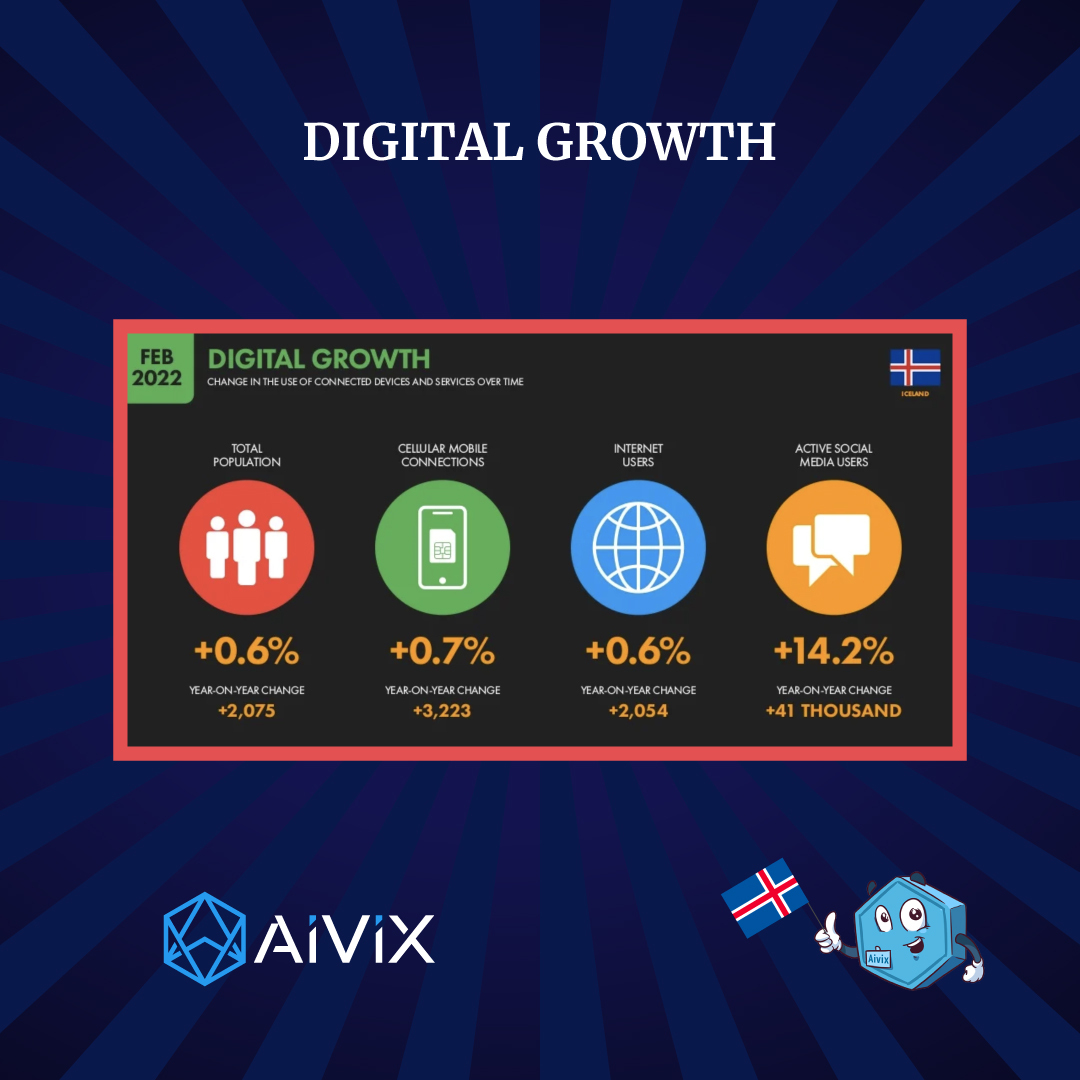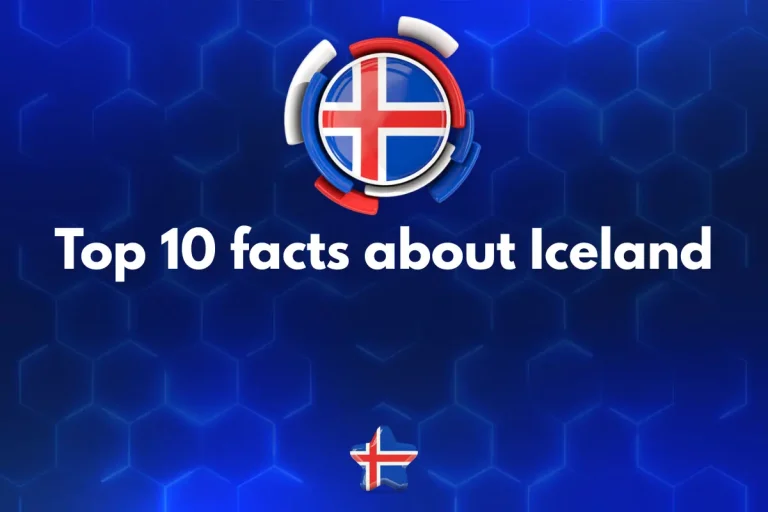
Iceland is a small remote country located in the middle of the Atlantic Ocean. The specifics of the location made it difficult for tourists to reach, but there is definitely something to see here: the unique northern nature cannot leave you indifferent.
Geography and population
As mentioned above, Iceland is located in the middle of the Atlantic Ocean. This island state with an area of 103 thousand km2 is almost completely covered with numerous volcanoes, hot springs, and glaciers.
Volcanoes on the island are active and periodically erupt. Despite the fact that sometimes eruptions turn out to be catastrophic and unpredictable, they rarely lead to human casualties. An important feature of Iceland is the so-called fjords: narrow and unusually long bays inside the island.
The island is not green, although you will not see dense forests and lush gardens here. The vegetation is sparse, there are artificial coniferous plantations that dilute the landscape in different parts of the country. Vegetation monotony is associated both with the feeling that took place in the past and with climatic features. More than 11 thousand kilometers of the area falls on glaciers – naturally, nothing grows there.
Despite the abundance of glaciers and the northern location, Iceland is not the coldest Arctic country. In fact, the average temperature in January is only about -1°…-2°C, and in summer it can rise to +20°…+22°C. The weather is very changeable, a sunny day can quickly change into heavy rain and vice versa.
Very few people live in these territories – about 360 thousand people, 30 times less than in Moscow, 22 times less than in London, or 36 times less than in Tokyo. The density is 3.5 people per km2.
Most of the population are native Icelanders. Emigration and immigration in the case of this country are quite rare.
Official language
The official language of Iceland is Icelandic. Also in the country, most residents speak English well; other Scandinavian languages are being actively studied, for example, Norwegian.
Currency
The local currency is the Icelandic krone. It was put into circulation in the 19th century and is still used today. You can change the currency at the airport upon arrival in the country.

Internet
There are no internet problems in Iceland. This applies to the home connection, mobile communications, and free Wi-Fi – it can be found in most hotels, cafes, restaurants, airports, and public places.
Mobile operators have very good coverage even in remote areas. Upon arrival, it is more profitable to buy a local card: for example, Siminn. Package rates are not the cheapest: offers for tourists with 10 GB of the Internet for a month will cost about 20 euros. In addition to local operators, Vodafone is available on the island. 50 GB will cost about 40 euros. Cards are sold at airports or company stores, as well as in some supermarkets – unlike many European countries, in Iceland, you do not need to provide passport data and any personal information to purchase.
An alternative option is tourist SIM cards for those who come for a short time. Such cards are paid for upon use, without prepaid packages: how many megabytes you spent, so much money will be withdrawn.
Economic development
Iceland is not inferior to the Scandinavian countries in terms of economic development. GDP in 2020 was $21 billion, or more than $53,000 per capita.
The financial sector is of great importance. The peculiarities of the location and crafts led to the fact that a developed banking system appeared in the country, which for a long time was considered one of the best in the world.
But the industry in Iceland is not developed at all. The country extracts nothing and does not produce anything, its main activity is fishing. It is also worth mentioning one very special sector: the extraction of eiderdown. Icelanders have been doing this for almost one and a half thousand years and successfully sell raw materials to other countries.
Agriculture is also not very developed – due to the peculiarities of the climate and soil in the country, only a small part of the territory is suitable for crops. Where possible, wheat is grown, but the greatest attention is paid to animal husbandry: the breeding of cattle, horses, and poultry.
In the same section, it is worth noting high taxes: also fuel the economy of the state to a large extent. Fortunately, the local population is able to pay them – the unemployment rate in Iceland is low.
Job in Iceland
The average salary in Iceland is about 3,000 euros. The salary largely depends on both the region and the position. Jobs are more difficult to find in rural areas, as the population migrates within the country, trying to move to large cities – especially to the capital, Reykjavik.
The minimum wage is about 1100-1300 euros, and this is how many representatives of unskilled professions receive: loaders, waiters in restaurants, sellers and the like.
Specialists earn much more. The average salary of a doctor is about 5,500 euros, about the same amount received by representatives of the IT field and engineers. Lawyers and accountants receive slightly less (about 3,500 euros on average), and teachers are offered a rate of about 5,000 euros.
Despite (or because of) the low unemployment rate in the country, it will be very difficult for a newcomer to find a job here, and preference will always be given to someone from the locals. It is strongly not recommended to go for permanent residence at random, because the chance of not finding anything is very high: it is better to find an employer who is ready to hire a foreigner, even at home. The attitude of governments towards immigrants is not the most loyal, which is probably why there are so few of them.
It is also worth noting that the salary in Iceland depends not only on professionalism but also on age. In the same position, a 25-year-old and a 40-year-old will be paid differently.

Prices
Prices in Iceland can be summed up in one word: expensive. In this, the country is also similar to its northern neighbors, such as Norway, and in general, it is considered one of the most expensive in Europe. Let’s start with the cost of housing: small one-room apartments on the outskirts will cost at least 1000 euros and from 1500 euros in the center. This applies to small cities – in the capital it will be more expensive. It is also necessary to take into account 100-200 euros for utility bills.
A monthly pass for public transport will cost about 80 euros, and a one-time trip will cost about 4 euros. For comparison, in Italy, an adult ticket costs less than 40 euros.
Here are the standard prices for basic goods in supermarkets:
Chicken fillet – from 17 euro/ kg
Pork – from 10 euros per kg
A pack of pasta, 500g – 1.5 euros
Eggs – about 3.5 euros for 10 pieces
Cheese – from 12 euros per kg
Potatoes – 1.5 euro/ kg
Tomatoes – 1.8 euro/ kg
Apples – from 1.8 euros per kg
It is customary to make purchases every few days or even a couple of weeks, so as not to drag each time to the supermarket – they are not at every turn, as in Ukraine or Russia.
Medicine and education
Medicine in Iceland is also very expensive, especially dental services. Local residents can enjoy the benefits of social health insurance, which covers part of the costs. Some, but not all: you still have to pay for some procedures.
It is better for foreigners not to get sick in Iceland. Emergency assistance will be provided, but the service check can be shocking.
Higher education in Iceland is not very oriented towards international students. Most of the curricula are conducted in Icelandic; you can only study in English for a master’s degree. For visitors to universities there are special language courses, moreover, after school, in any case, it is obligatory to take special preparatory courses.
The cost of higher education for foreigners varies from university to university (there are seven in total). Public universities charge only a few hundred dollars a year, while private ones cost several thousand.
If you plan to move with school-age children, education is free for them, however, it lasts much longer than in the CIS countries: students graduate from high school at 16, and then spend another 4 years in senior school, receiving something like a compulsory secondary special or vocational education.

Working days and holidays
Iceland is a country that does not have many holidays and weekends familiar to mainland Europeans. The local religious population consists mainly of Lutherans, which also affects the calendar.
January 1 – New Year
April – Good Friday and Easter
May 1 – Labor Day
June 17 – Republic Day
October 31 – All Saints Day
December 25 – Christmas
There are also a few informal public holidays that are not official holidays, such as Father’s Day and Mother’s Day. International Women’s Day is not celebrated in this country.
But they celebrate a lot of pagan or just purely local dates: for example, a holiday dedicated to fishing, or the Torah festival, which takes place in the middle of winter. It is usually celebrated with family and friends.

Mentality
The Icelandic mentality is very different from what we are used to. They are calm, not lazy, but clearly separate work and leisure: perhaps this is what determines the way of local life. Interestingly, local supermarkets can only work until 2-3 pm, or, in some cases, until 5-6 pm. There are not so many 24-hour supermarkets.
But there are plenty of nightclubs for relaxation – bars and restaurants where you can drink, dance and listen to music. Not only young people are entertained in this way, but also middle-aged people.
The attitude towards women is also different. The rights and obligations of both sexes are equal: women can be involved in hard physical labor, and certainly, few will offer a lady to carry heavy packages. Here it is considered absolutely normal and is presented as a feature worthy of pride – local girls are strong, independent, and self-sufficient.
It is not customary to make strong friendships with foreigners, and in a few years of living in a new country, you may not acquire a close environment. Although in friendly communication at a distance, the Icelanders have no equal.

Cryptocurrency
Cryptocurrencies in Iceland are not very common, the local population does not show such great interest in them compared to other European countries. At the same time, digital assets are not prohibited in the country: they can be bought on the stock exchange, sold, stored, and even mined. At some point, Iceland became a more attractive mining destination than any other, especially after the bans in China, due to the availability of electricity.
Iceland is also thinking about some restrictions in this area. Among other things, local energy operators are reluctant to provide services to industrial mining companies.
Conclusion
Iceland, separated from the mainland by endless oceans, is not at all like other European countries. And attracts here, of course, first of all, the unique nature, and only then the high standard of living, typical of the Scandinavian states.


0 Comments